BSHORE
Actionable Guides and Tips for
Successful Offshoring to The Philippines
Introduction to Offshoring in the Philippines: Your Gateway to Business Excellence
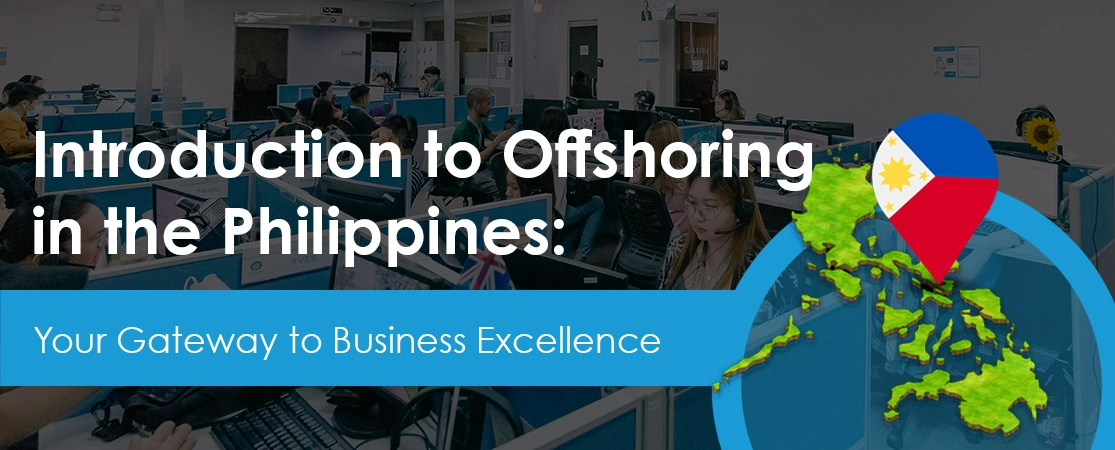
Since the 1970s, offshoring has become a strategic business tool for many industries. As it gained significant traction in the 1990s, businesses around the world turned to offshoring to expand capacity. Nowadays, businesses leverage the growing and competitive offshoring talent to capitalise on cost advantages, tax breaks, and streamlined regulations in the host country.
Initially, offshoring mostly involved manufacturing and assembly tasks because such operations follow processes set by businesses, which reduces risk and ensures quality work. However, as education and technology continue to improve in the host country, businesses around the world have started offshoring knowledge-related and talent-related tasks from these offshore locations to scale their operations and capacity.
Worldwide, the most outsourced roles offshore are in areas such as design, information technology, finance, marketing, and even engineering. This gave rise to countries like the Philippines, India, and Vietnam becoming hubs for offshore outsourcing by leveraging their large talent pool of university graduates to provide high-quality workforce to supply the demand for offshore talents.
![A bar graph showing the share of the global IT-BPO market by number of workers in 2020, in percent. India has the largest share at 37%, followed by the Philippines at 15%, Poland at 10%, China at 7%, Canada at 6%, and Ireland at 5%. [Source: Everest Group]](https://www.shore360.com/wp-content/uploads/2024/05/R1_Blog-Graph-Images_A.jpg)
The Philippines has emerged as one of the top and most sought-after offshoring destinations, driven by a highly skilled workforce in a business-friendly environment. The country captures a significant 10–15% share of the global offshoring market, leading in key service areas like business process outsourcing, IT, digital marketing, and design. Additionally, the Philippines boasts a proven track record of successful offshoring partnerships with companies from the US, Australia, New Zealand, and Singapore.
Dominate the market by capitalising on offshoring opportunities in the Philippines. Learn the dynamics of the offshore outsourcing industry in the country and how it fits your business goals. Discover how establishing a smoothly integrated offshore team in the Philippines will fuel your company’s growth and propel you towards success.
Overview of the Philippine Offshoring Landscape
![A line graph showing the growth of the Philippine IT-BPM market revenue from 2013 to 2023, with a projection for 2024. The revenue has steadily grown from $15.8 billion in 2013 to an estimated $35.9 billion in 2023. [Source: IBPAP]](https://www.shore360.com/wp-content/uploads/2024/05/R1_Blog-Graph-Images_B.jpg)
The Philippines’ strong political and economic support has fostered the development of numerous niche industries and the rise of offshoring hotspots throughout the country, solidifying its position as a global offshoring hub.
Continue reading to acquire insights into the origins of these advancements and to identify the optimal location for establishing your next offshore office.
History and Evolution of Offshoring in the Philippines
The offshoring industry in the Philippines commenced its development in the early 1990s and experienced rapid expansion throughout the early 2000s and 2010s. Since then, it has firmly established itself as a prominent offshoring destination.
The IT and Business Process Association of the Philippines (IPBAP) reports that the industry has achieved remarkable growth over the past three decades, generating a staggering $35.9 billion in earnings by 2023. This substantial growth was due to strong government support, excellent local and multinational offshoring/BPO providers, and highly skilled Filipino offshore talents.
Here’s the complete timeline for offshoring developments in the Philippines.

The 1990s laid the key foundations of the offshoring industry in the Philippines which led to what it is today.
- 1985: Accenture Philippines was established with just 75 initial employees. The Philippines became the first delivery centre in Accenture’s global network.
- 1992: Frank Holtz of Accenture successfully set up and marketed the first Global Resource Centre in Manila which provided basic services like email response and service management.
- 1995: The Philippine Congress passed the Special Economic Zone Act, which allowed buildings or floors to register as “ecozones.” These “ecozones” helped industries get exemptions from local and national taxes which attracted more foreign investments.
- 1997: Skyes Asia becomes the first multinational offshoring provider in the Philippines.
- 1999: eTelecare established the first call centre in the Philippines.

Throughout the 2000s, the Philippine offshoring industry underwent rapid growth and development as an increasing number of offshoring providers initiated their operations.
- 2000: The offshoring industry had already accounted for 0.075% of the Philippines’s total GDP.
- 2001: PeopleSupport, a US-based call centre, migrated its operations which created 8,400 jobs.
- 2003: Convergys Corp. inaugurated two call centre sites in Manila.
- 2005: The Philippines increased its share of the global offshore outsourcing market by 3%. The projected growth rate stood at 46% per year.

Throughout the 2010s, the Philippines established itself as a significant hub for offshoring. The country primarily provides outsourcing services to companies in the US, Australia, the UK, New Zealand, and beyond.
- 2010: The Philippines earned the moniker “world’s offshore outsourcing capital,” boasting a workforce of 525,000 offshore talents and generating $8.9 billion in revenue.
- 2011: The Philippine offshoring industry employed 638,000 workers and generated $11 billion in revenue, constituting 4.9% of the total GDP.
- 2013: The industry generated $15.5 billion in outsourcing revenue and employed 900,000 full-time Filipino workers.
- 2014: During this period, geographic offshoring hubs within the country, such as the Clark Freeport Zone, expanded both in size and operations. Concurrently, local offshoring providers like Shore360, Inc., started operations, providing top-tier outsourcing services.
- 2016: The BPO industry was projected to generate 1.3 million jobs and to grow annually by 17%.

Throughout the 2020s, the Philippine outsourcing industry persevered through challenges, maintaining steady growth and leading the integration of AI into workplaces.
- 2020: Despite the impact of COVID-19 on the Philippines, IBPAP reported 1.4% growth in the industry.
- 2021: The offshoring industry experienced a significant rebound, with estimates indicating a growth of 5.3%.
- 2022: The Philippine offshoring industry extended its reach beyond traditional voice-based services into various fields, including IT, design, digital marketing, and others.
- 2023 to now: The widespread integration of artificial intelligence in the outsourcing industry has raised questions about the future of certain outsourced jobs. However, according to Matt Barrie, Filipino offshore talents lead in AI utilisation and are actively exploring AI-related job opportunities.
Key Industries and Sectors Thriving in Philippine Offshoring
Through the integration of the offshoring industry into the DNA of the Philippine economy, the country became a boutique of offshore solutions for businesses worldwide. The Philippines is leading in providing offshore services to industries like Information Technology (IT) Outsourcing, Business Process Outsourcing (BPO), and other growing sectors like Digital Marketing Outsourcing, Creative Process Outsourcing and Real Estate Outsourcing.
Empower your business through the offshoring services offered by these key industries and sectors in the Philippines. Successfully strategize your journey with an offshoring company in the Philippines to tailor solutions to your business.

1. Information Technology (IT) Outsourcing:
- Software Development
The Philippines offers a significant advantage in the IT sector: a large talent pool of over 1.3 million skilled programmers. This is according to the Philippine Software Industry Association (PSIA). These programmers possess expertise in a wide range of programming languages and frameworks. Their services encompass a variety of in-demand areas, including:
- Mobile app development
- Enterprise software development
- Web application development
- Cloud computing solutions
- User interface (UI) / user experience (UX) design
- Web Development
The Philippines boasts a robust talent pool of IT graduates. In 2022 alone, the Commission on Higher Education (CHED) reported over 82,000 IT graduates entering the workforce, guaranteeing a steady stream of skilled professionals for the web development sector.
Filipino IT professionals are highly sought-after for their expertise in web design, front-end development, and back-end development. They consistently deliver user-friendly and functional websites and web applications, including:
- E-commerce website developmen
- Content management system (CMS) development
- Custom web application development
- Website maintenance and support
- IT Support
The Philippines has become a leading destination for Australian and New Zealand companies seeking highly skilled IT support solutions. These solutions encompass a broad range of services, including network management, system administration, and technical troubleshooting.
In addition, you can leverage expertise in areas like help desk support, network operation centre (NOC) services, server administration, cybersecurity, and end-user support.

2. Business Process Outsourcing (BPO):
- Customer Service:
The Philippines has earned its reputation as the “Call Centre Capital of the World” thanks to the exceptional communication skills and cultural sensitivity of Filipino customer service agents. These qualities make them ideally suited to handle customer enquiries and build strong brand relationships.
Offshore call centre providers offer a range of services, including:
- Inbound and outbound call centre operations
- Live chat support
- Email support
- Social media customer service
- Technical support
- Data Entry and Processing:
The Philippines is a leading destination for outsourcing tasks that demand both precision and efficiency. This includes data entry, document processing, and medical transcription. Partnering with offshore providers allows you to access a skilled talent pool in the Philippines and leverage their expertise. These providers can also handle training to ensure consistently high-quality delivery of these business processes.
- Accounting and Finance:
The Philippines boasts a substantial pool of over 200,000 certified public accountants (CPAs) as of 2023, making it a prime destination for businesses seeking to expand their finance departments. This abundance of talent makes the Philippines a haven for businesses looking to outsource financial tasks. Many clients choose to leverage this expertise by outsourcing tasks like bookkeeping, payroll, and financial reporting to Filipino accountants. Our offerings in this industry extend beyond these core services to include:
- Bookkeeping and accounting
- Accounts payable and receivable management
- Payroll processing
- Tax preparation
- Financial reporting

3. Other growing sectors:
- Creative Process Outsourcing:
In recent years, the Creative Process Outsourcing (CPO) industry has been growing in the country, serving the growing demand for animation, visual effects, and graphic design services. Other outsourced services include:
- 2D animation
- 3D animation
- Motion graphics
- Visual effects (VFX)
- Graphic design
- User interface (UI) and user experience (UX) design
- Digital Marketing Outsourcing:
The Philippines has emerged as a leading destination for high-calibre digital marketing talent and agencies since the rise of the internet. These professionals consistently achieve outstanding results by developing and executing successful digital marketing campaigns for companies in the US, Singapore, the UK, Australia, and New Zealand. Their expertise spans a broad spectrum of proven strategies, allowing them to tailor solutions that meet your specific business requirements. Their services can encompass:
- Search engine optimisation (SEO)
- Social media marketing
- Content marketing
- Email marketing
- Real Estate Outsourcing:
Real estate outsourcing in the Philippines is one of the fastest-growing offshore service sectors in the country. This industry is experiencing rapid expansion due to its cost-effective solutions and scalable options, making it a compelling business strategy. Australian real estate businesses are increasingly turning to Philippine-based outsourcing providers to streamline their operations. These providers offer a skilled workforce that can manage a variety of tasks, including property management, leasing, market research, and lead generation.
Geographic Hotspots for Offshoring in the Philippines
The Philippines boasts a diverse range of offshoring hotspots, featuring unique facilities and workforces. Leverage the advantages of these locations to start your offshoring journey in the country.
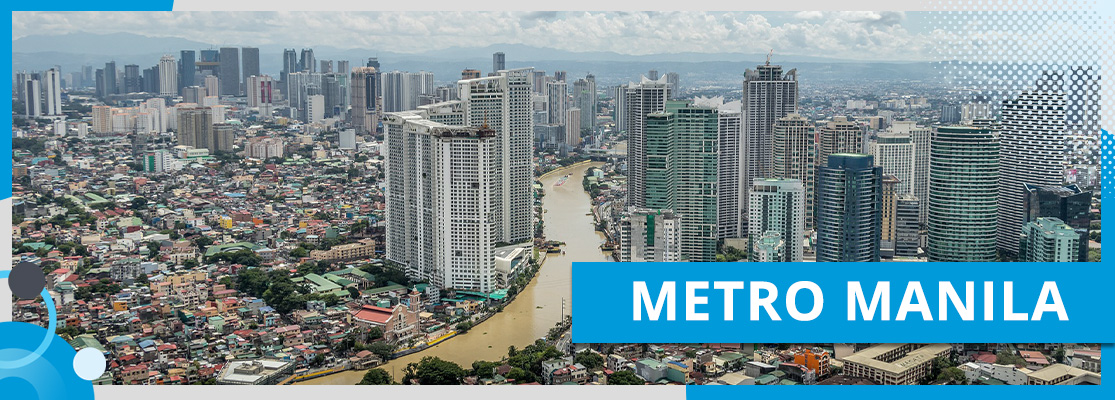
Metro Manila (National Capital Region)
This bustling metropolis is the undisputed heavyweight, offering the largest talent pool and the most developed infrastructure in the country. It’s the ideal choice for companies seeking a cosmopolitan work environment and access to a vast pool of skilled professionals.
- Advantages:
- Largest talent pool in the Philippines
- Most developed infrastructure
- Cosmeopolitan work environment
- Disadvantages
- Highest cost of living in the Philippines
- Traffic congestion can be a challeng
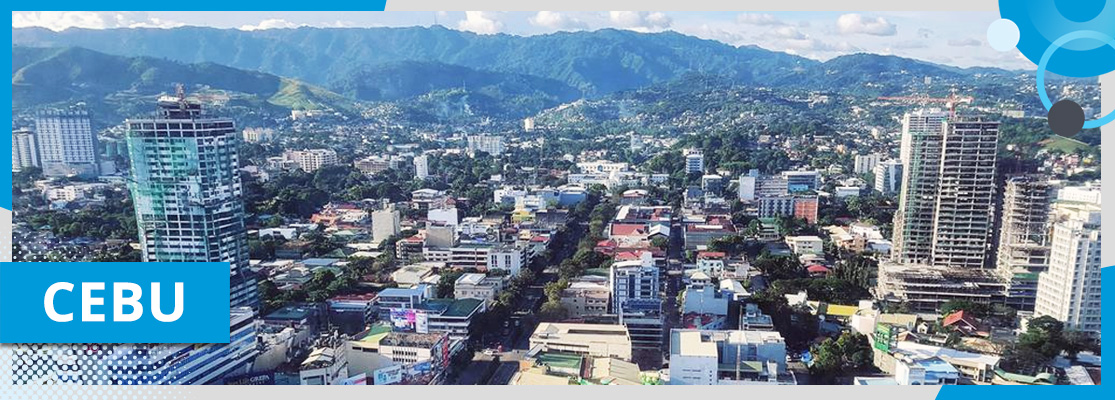
Cebu City
The Philippines’ second-biggest IT hub, Cebu City, shines in voice-based services and IT development. Compared to Metro Manila, Cebu offers a more attractive cost of living, making it a compelling option for budget-conscious businesses.
- Advantages:
- Second-biggest IT hub in the Philippines
- Strong talent pool for voice-based services and IT development
- Lower cost of living compared to Metro Manila
- Disadvantages
- Infrastructure development might not be as extensive as Metro Manila and Clark Freeport Zone
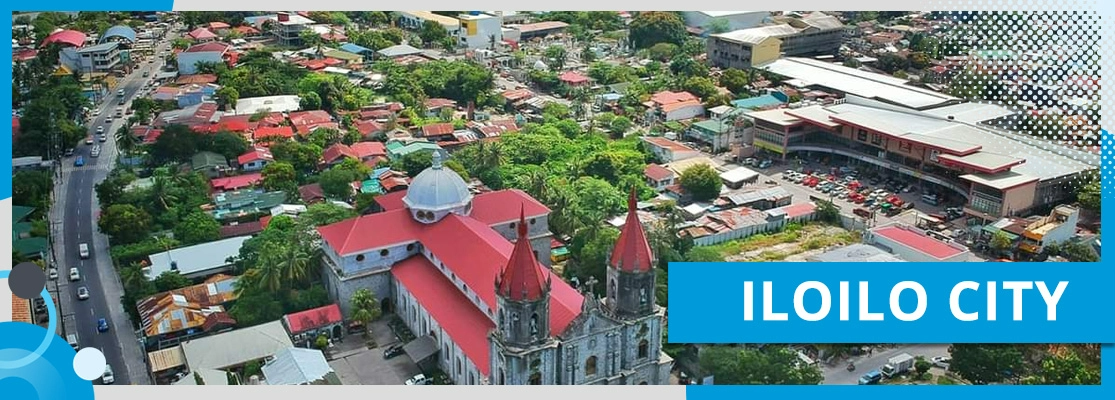
Iloilo City
Emerging as a star player in the offshoring scene, Iloilo City is particularly well-suited for voice-based services and back-office operations. This city ticks all the boxes: a high quality of life, a lower cost of living compared to major cities, a rich cultural scene, and strong government support for offshoring initiatives.
- Advantages:
- Emerging IT hub with a growing talent pool
- Lower cost of living and high quality pool life
- Strong government support for offshoring initiatives
- Well-suited for voice-based services and back-office operations
- Disadvantages
- Limited pool compared to larger cities
- Less developed infrastructure compared to Metro Manila

Clark Freeport Zone
Looking for the most cost-competitive location? Look no further than Clark Freeport Zone. This zone entices businesses with significant tax breaks and incentives. It also boasts top-notch infrastructure that is being improved upon, including modern office spaces, an expanding international airport and public transportation systems.
- Advantages:
- Most cost-competitive location with significant tax breaks and incentives
- Top-notch infrastructure (Clark International Airport, Clark Global City, Philexcel) with modern office spaces and reliable utilities
- Offers a more focused and streamlined business environment, ideal for companies seeking operational efficiency
- Disadvantages
- The infrastructure is still under growth, but adequate and comparable to Manila
Choosing Your Ideal Offshoring Hub
Selecting the perfect offshoring location requires careful consideration. Key factors include your industry focus, budgetary constraints, talent requirements, and infrastructure needs. Here’s where Clark Freeport Zone steps in.
Think of Clark Freeport Zone as the Goldilocks of offshoring destinations; it offers “just the right” combination of advantages. For example, state-of-the-art business parks like Philexcel Business Park and Clark Global City guarantee accessibility and reliability, ensuring your offshore operations run smoothly. Additionally, Clark boasts major airports, express highways, and hotels, making it a breeze for company owners to visit their offshore teams.
Your Clark offshoring partner can help you unlock access to these prime locations within the zone while also ensuring reduced costs in comparison with traditional offshoring methods.
Maximising Efficiency and Savings through Offshoring
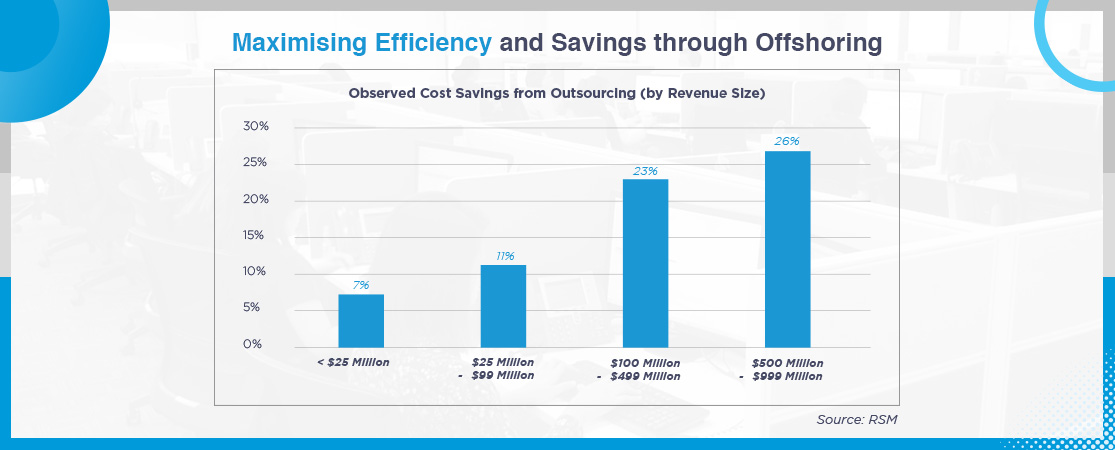
The internet age has allowed constant improvement in efficiency and cost reduction, which are key priorities for businesses. Offshoring to the Philippines has become a strategic option for businesses to achieve these goals. This approach offers significant cost savings and access to a talented pool of Filipino industry professionals.
Supercharge your business scalability goals by leveraging the cost efficiency and savings that Philippine offshoring providers can offer.
Cost Efficiency: Analysing the Financial Advantages
Let’s look at the financial benefits of offshoring. These are the top five most outsourced roles in the Philippines.
Disclaimer: It’s important to understand that the salary figures presented here are averages for Western countries and the Philippines. Your actual costs will vary depending on several factors. These can include your chosen offshoring partner, the specific work required, the skill level needed, industry benchmarks, and regional salary variations within the Philippines itself.
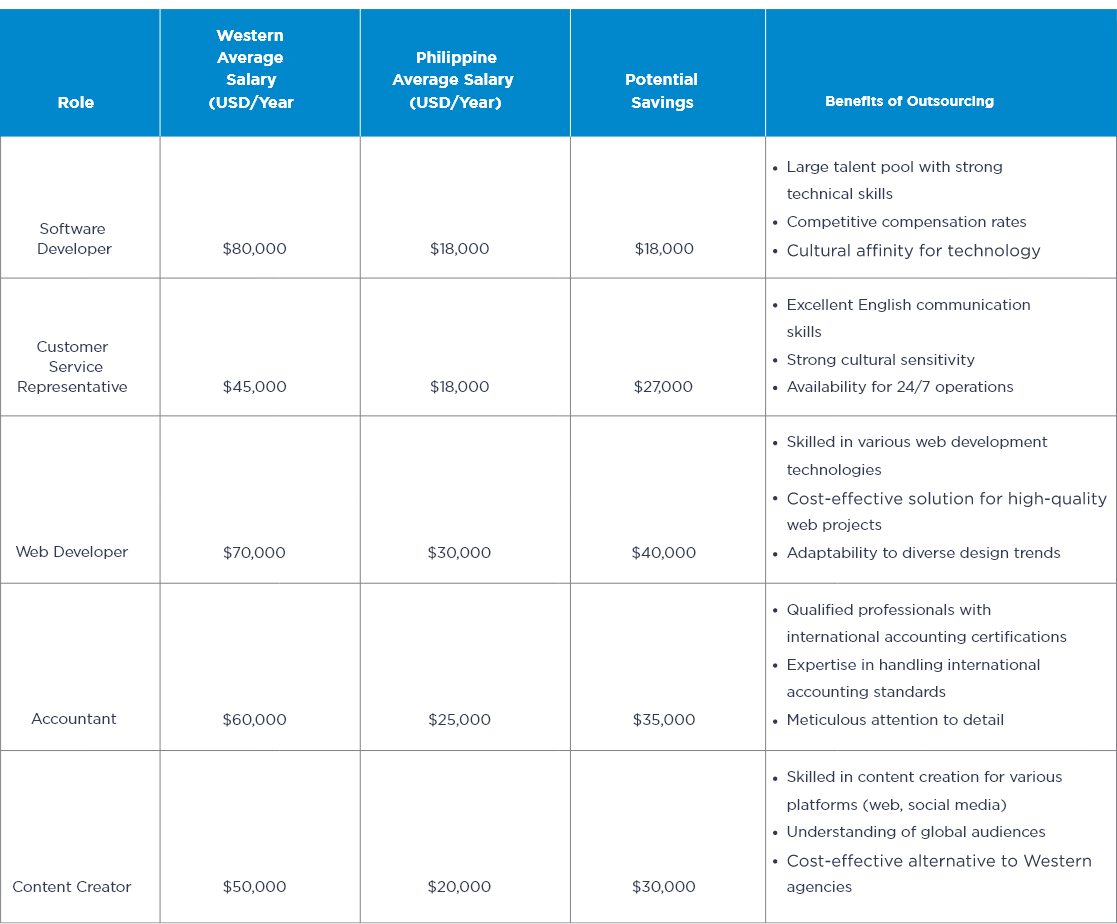
This chart captures the essence of why the Philippines is a magnet for offshoring clients globally. These top five outsourced roles exemplify the cost-effective advantages your company can secure.
To capitalise on these opportunities, partnering with a reputable offshoring provider is paramount. These providers ensure you navigate the legalities and strategic considerations for entering your target markets.
The Philippines offers more than just cost savings, as it empowers your company with strategic flexibility. Through strategic flexibility, you can effortlessly scale your operations up or down and adapt to dynamic markets with industries facing fluctuating demand and evolving customer preferences.
Here’s a rundown of the additional benefits you can maximise by offshoring to the Philippines:
-
Effortless Scaling: Filipino teams provide the flexibility to adjust your workforce seamlessly based on demand. This flexibility ensures operational efficiency regardless of market conditions, eliminating the need for extensive hiring sprees or redundancies.
-
24/7 Customer Support: Call centres in the Philippines operate around the clock. This continuous availability translates to enhanced customer service, faster response times, and ultimately increased customer satisfaction—a significant advantage for companies with international clientele.
-
Mitigating Risk: Offshoring offers diversification by geographically spreading your operations. This can safeguard your business continuity in the event of disruptions like natural disasters or political instability in your home country. Your Philippine team can ensure operations keep running smoothly.
-
Innovation through Collaboration: Collaboration across cultures fosters knowledge sharing, which can spark innovation and creativity within your organisation. By merging diverse perspectives and skillsets, your company can continuously improve.
Language Proficiency: English Proficiency in the Workforce

Clear and effective communication is paramount in global collaborations like offshoring. As the world’s business language, English plays a critical role in ensuring efficient communication on a global scale. High proficiency in English is essential for understanding business goals and executing plans flawlessly. The Philippines has a distinct advantage in the offshoring industry due to its widespread use of English.
English holds official language status in the Philippines and is widely integrated across the education, government, and business sectors. This constant exposure provides Filipinos with a strong foundation in the language. According to the EF English Proficiency Index (EPI) 2022, the Philippines ranks a very respectable 22nd out of 111 countries, placing it firmly in the “high proficiency” category. Furthermore, a Social Weather Stations (SWS) survey conducted in March 2023 revealed that a remarkable 80% of Filipino adults comprehend spoken and written English.
Benefits of English Proficiency to Offshoring in the Philippines:
-
Effective Communication: Clear and articulate English minimizes misunderstandings and streamlines workflow efficiency.
-
Global Accessibility: English proficiency allows businesses to seamlessly integrate offshore Filipino teams into their global operations.
- Professional Development: Access to a wealth of English-language resources empowers Filipino employees to upskill and remain current on industry trends.
Cultural Synergy: East Meets West

Globalisation presents exciting opportunities for collaboration by blending Eastern and Western cultures. The Philippines, with its history of Western influence, stands out as a nation with a strong cultural fit for American, Aussie, British, Kiwi, and other western businesses. However, to successfully integrate Filipino talent into your offshore teams, understanding their cultural adaptability is key.
Cultural Compatibility and Adaptability
Shared Values:
-
Strong Work Ethic: Filipinos are renowned for their dedication and hard work, perfectly complementing westerners focus on productivity.
-
Respect for Hierarchy: Filipino professionals naturally respect authority figures, making it easier for them to adapt to our hierarchical structures.
-
Customer Service Excellence: Filipinos excel in customer service, aligning perfectly with the customer-centric approach of many Western businesses.
Key Differences to Consider:
-
Collectivism vs. Individualism: Filipino culture prioritises group harmony, while Western workplaces tend to emphasise individual achievement.
-
Decision-Making: Filipinos often seek consensus before making decisions, contrasting with the more independent decision-making style in Western workplaces.
-
Direct Communication: Western communication tends to be more direct than the indirect Filipino style. Clear communication training can bridge this gap.

Understanding Filipino Work Culture and Ethics
Filipino work culture thrives on a foundation of distinct values and ethics. Understanding these is essential for fostering a productive and harmonious working environment with Filipino colleagues. Here are some key aspects to consider:
-
Collaborative Spirit: Filipinos value teamwork and readily assist one another. This “bayanihan spirit” fosters a supportive and productive work atmosphere.
-
Clear Leadership: Filipinos value clear direction and respect authority figures. Effective leaders provide guidance and support for their teams.
-
Relationship-Building: Strong bonds with colleagues are important to Filipinos. Invest time in building rapport for a more cohesive and positive work environment.
-
Respectful Hierarchy: Filipino workplaces have established hierarchies. Demonstrating respect for seniority fosters a smooth workflow and a strong team dynamic.
-
Work-Life Balance: Filipinos prioritise time with family and seek a healthy work-life balance. Employers who recognise this can create a more engaged and satisfied workforce.
-
Adaptability and Resilience: Filipinos excel at handling challenges and adapting to change. This makes them valuable assets in dynamic work environments.
-
Recognition and Reward: Filipinos take pride in their work and appreciate acknowledgement of their achievements. Implementing a system of recognition can significantly boost employee morale. Cultivate a thriving work environment for your Filipino team by appreciating and respecting these values. When selecting offshoring providers, ensure they value Filipino culture to maintain employee engagement and satisfaction.
The Takeaway
The Philippines has emerged as a compelling destination for offshoring, offering a multitude of advantages for businesses seeking to expand their global reach and optimise their operations. The country also empowers businesses to achieve their strategic objectives by providing a highly skilled and multilingual workforce, combined with a supportive government and competitive business costs.
In parallel, partnering with a reputable offshoring provider in the Philippines can streamline your entry into this dynamic market. Experts can guide you through legalities, navigate cultural nuances, and ensure a smooth integration of your offshore .
Embrace the opportunity to harness the potential of the Philippines and unlock a world of growth and success for your business. With careful planning and a strategic approach, you can cultivate a thriving offshore operation that fuels your company’s long-term prosperity.
Talk with us to start your offshoring journey with excellence.
